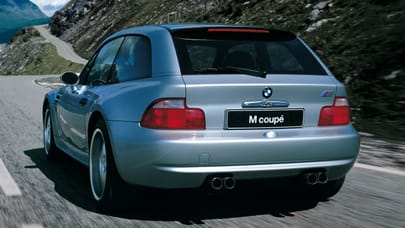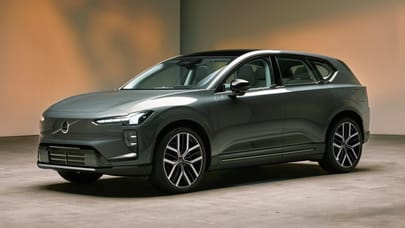
Five things we learned about the new Ford Kuga Hybrid
Some early Easter eggs - and useful features - spotted in Ford's new SUV

1. It’s got a useful amount of e-range

Admittedly in these odd and travel-restricted times, we’ve not been able to repeat-test this as much as we’d like, but on a warm-ish spring day and with a full charge on board, the Kuga PHEV managed 28 miles before the battery was depleted. 28 miles of mainly town and inter-town cruising, averaging about 30mph, never going quicker than 50mph, at a leisurely pace. Impressive stuff from the 14.4kWh battery. Given that the majority of commutes are said to be under 20 miles, there’s a real possibility you could use a Kuga as an EV in a normal weekday routine. When we get back to having one…
Advertisement - Page continues below2. It’s got a strange diamond pattern on the doors

What’s going on here then? Some strange attempt to reinvent quilting, in plastic? This odd surfacing breaks up what would otherwise be a featureless cliff face of drab, and the Kuga’s dour cabin needs all the help it can get in that regard. Still, it’s an odd effect. And it's used in the rear doors as well, so the young'uns have a new place to mash crumbs into.
3. Eat your heart out Tesla: it’s got great auto-steer

Ford does not claim the Kuga can ‘drive itself’. It talks extensively of the car’s driver assistance systems, but doesn’t pretend that this is a machine that’ll guide itself along a road while you have a nap. That’s illegal. Eyes front. Hands on the wheel.
And yet… the lane-following steering assist is one of the very best we’ve used. Not only does it position the car nice and centrally in the lane – rather than a Tesla-style too-far-to-one-side approach that makes life tricky for cyclists and motorcyclists – but it guides the car along with impressive accuracy. It doesn’t ‘react’ to the road changing direction with those heart-stopping jagged steering inputs in so many other modern assisted-driving cars. It doesn’t ping-pong between the lanes. Course, if you try to go hands-free it’ll make merry with alerts and alarms until you grab the wheel once more. But on a long motorway schlep, and in traffic, it’s a very welcome companion.
Advertisement - Page continues below4. ‘L’ is for ‘less fuel consumption’

This ‘L’ button is an important one: push it to increase the level of battery-regen when you’re coasting. The Kuga reports what percentage of available energy you’ve managed to harvest back into the battery each time it comes to a stop, so if you deploy ‘L’ at the right time, it’ll reward you with big numbers on the screen.
Given it’s a useful feature, it’s a mystery why the button itself is rather small and nondescript. ‘L’ stands for ‘Low’ in Ford’s usual shifter markings, and locks the car into its lower gears for better getaways on steep gradients, for instance. Surely it should’ve been marked with a ‘coasting’ legend or battery logo instead?
5. There are many strange and wonderful mode display choices

Strap in. Here’s Normal, which you’ll see most of the time, as it’s the default…
Then there’s…

... Sport mode, which summons more more excitement from the dials than it does from the engine…

... plus a Deep Snow / Sand mode, which seems a bit silly, because telling drivers they can handle deep snow because they’ve got a mode built in, is ridiculous. Winter tyres, or better yet studded tyres or snow chains, are what you need to go mountaineering in a Kuga, if at all.
Advertisement - Page continues below
Meanwhile, Slippery mode is worth a look if only for the frosting effect on the screen. Nice, innit? About the only time we welcome seeing a snazzy new display in a car suddenly freeze.
Trending this week
- Top Gear Advice
Here are 19 brilliant cars that are cheaper than you think







